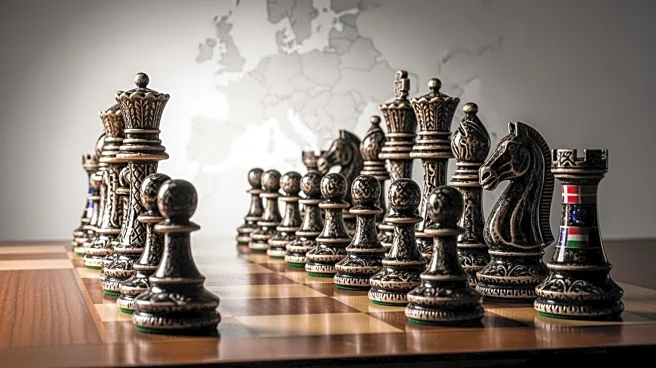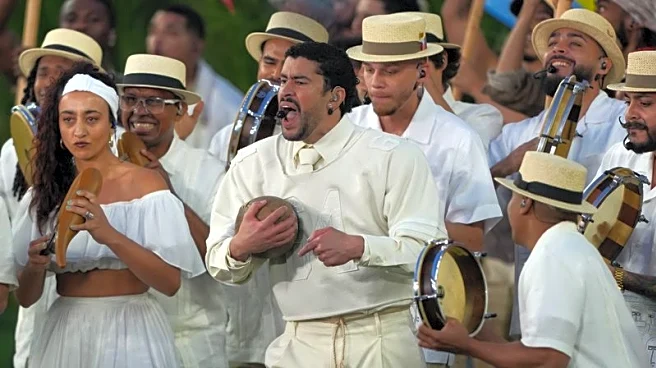What's Happening?
Vladimir Putin has been invited to Budapest for a potential meeting with President Trump to discuss the ongoing conflict in Ukraine. This meeting, if it occurs, would mark Putin's first visit to the European
Union since 2020. However, the visit is complicated by existing EU sanctions and an International Criminal Court (ICC) arrest warrant against Putin. The EU sanctions, imposed after Russia's invasion of Ukraine, include a travel ban for many Russian officials, though Putin himself is not banned from travel. Additionally, the EU has closed its airspace to Russian planes, posing logistical challenges for Putin's travel. The ICC warrant accuses Putin of war crimes related to the deportation of Ukrainian children, adding another layer of complexity to his potential visit.
Why It's Important?
The potential meeting between Putin and President Trump in Hungary could have significant geopolitical implications. It may signal a shift in diplomatic relations and impact the EU's efforts to isolate Russia. The meeting could also influence the ongoing conflict in Ukraine, depending on the outcomes of the discussions. For the EU, allowing Putin to enter its territory could be seen as undermining its sanctions regime and the ICC's authority, potentially weakening its stance against Russia. Conversely, denying entry could be used by the Kremlin to portray the EU as unwilling to pursue peace. The situation highlights the delicate balance the EU must maintain between enforcing sanctions and engaging in diplomatic efforts.
What's Next?
If the meeting proceeds, it will be crucial to observe how the EU and its member states respond, particularly regarding the enforcement of sanctions and the ICC warrant. Hungary's role is pivotal, as it has previously shown willingness to defy EU norms, such as its intention to withdraw from the ICC. The international community will be watching closely to see if Hungary facilitates Putin's visit and how this might affect its relations with other EU countries. The outcome of the meeting could also influence future diplomatic engagements between Russia and Western nations.
Beyond the Headlines
The situation raises questions about the effectiveness of international legal mechanisms like the ICC in holding world leaders accountable. The potential visit also underscores the challenges of enforcing international law when political and diplomatic interests are at stake. The EU's handling of this situation could set a precedent for how similar cases are managed in the future, impacting the credibility of international institutions and the rule of law.











